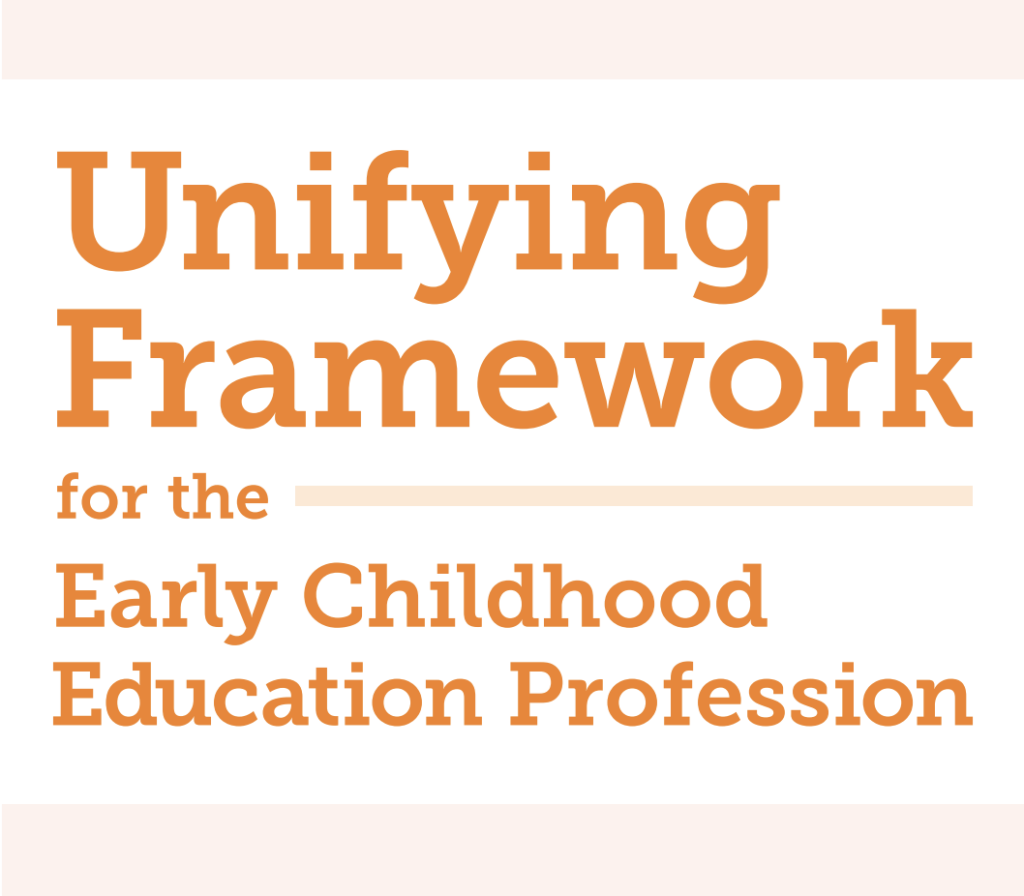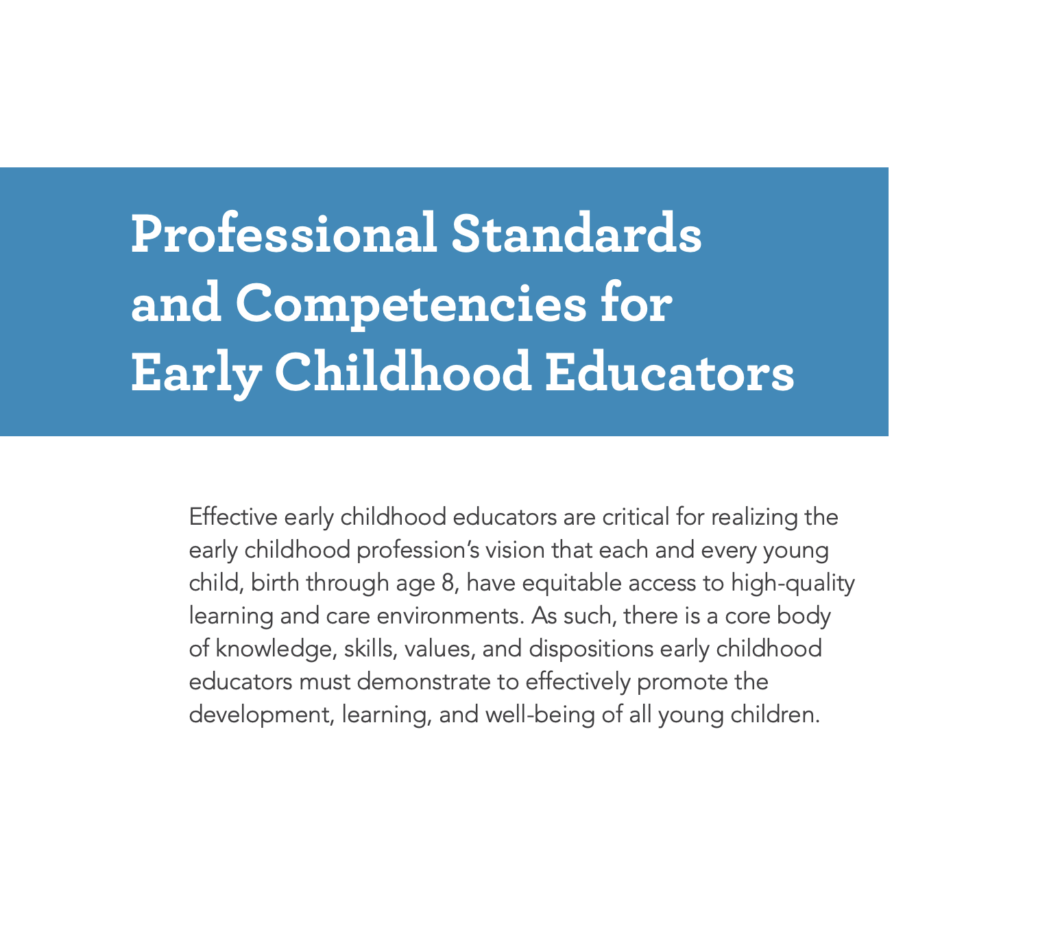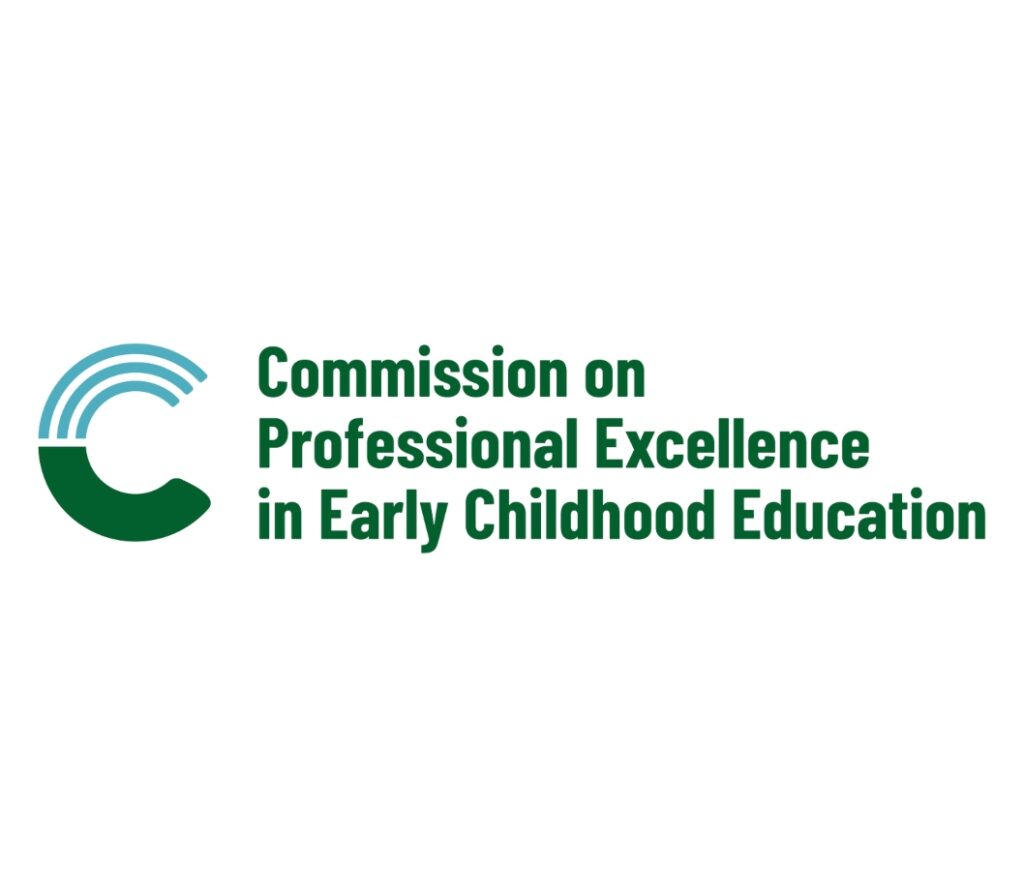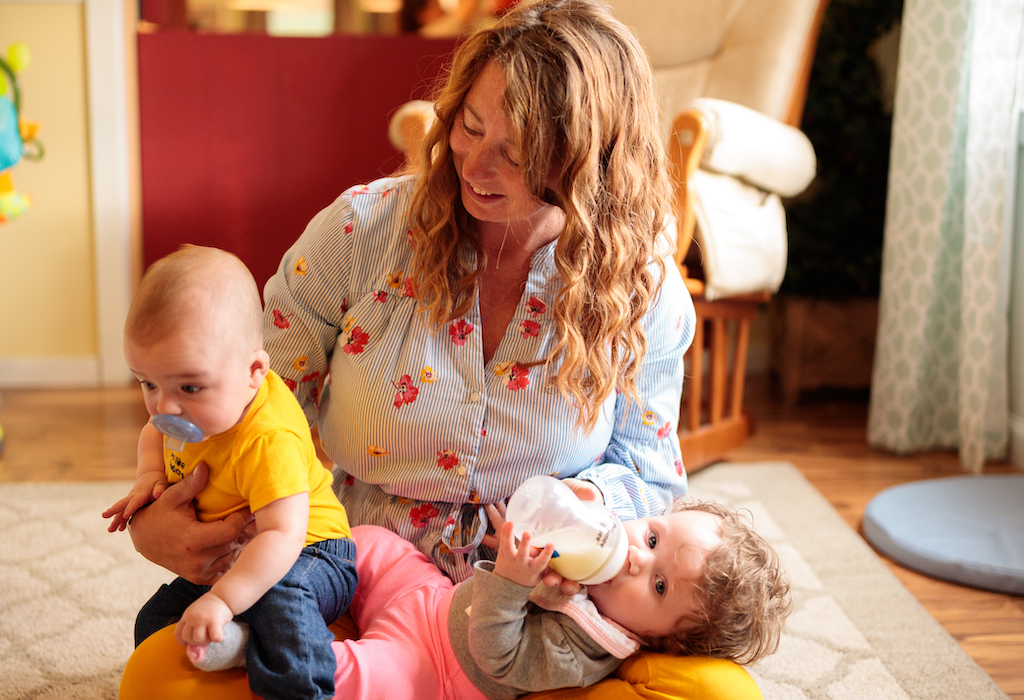Our Recommendations
Vermont early childhood educators agree our state should align with national recommendations for an Early Childhood Education Profession.
We need a profession that works for everyone in our mixed-delivery system, and a well-supported transition period for our workforce.
National Recommendations and Leadership
Our workforce-led consensus process in Vermont is modeled on the nationwide process that led to the Unifying Framework for the Early Childhood Education Profession. Vermont leads the nation in implementing its recommendations.

The Unifying Framework
The Unifying Framework makes recommendations that advance a unified, diverse, equitable, and effective national early childhood education profession. It is the core document of our project in Vermont. Our workforce overwhelmingly agreed with its recommendations.

NAEYC's Professional Standards and Competencies
The Professional Standards and Competencies will serve as standards for the future national ECE Profession.

The Commission on Professional Excellence in ECE
The Commission on Professional Excellence in Early Childhood Education launched in 2023 to serve as the professional governance body that advances the implementation of Unifying Framework recommendations nationwide.
We work closely with the Commission. It recognizes Vermont as one of a handful of states leading on implementing recommendations.
We Are Early Childhood Educators
Our profession is early childhood education. This is a distinct profession within the larger field of early childhood.
When you walk into any hospital or public school in the nation, you can tell by looking at someone’s ID lanyard what their role is and what they are qualified to do.
Early childhood education is specialized work. A cohesive professional identity across states and settings helps our communities understand our qualifications for doing this work, and the importance of providing high quality experiences for young children.
Learn more about the roles, responsibilities, and boundaries of the early childhood education profession in our Professional Identity Consensus Document.
We Practice as ECE I, ECE II, or ECE III
Early childhood educators will practice at one of three clear professional designations that represent their specific qualifications to support, lead, and guide.
We recommend preparation qualifications for each designation that are aligned and stackable:
- ECE I: Preparation program of minimum 120 clock hours
- ECE II: Associate degree in early childhood education
- ECE III: Bachelor’s degree in early childhood education
As an early childhood educator’s preparation and competency increase, their responsibilities and compensation also increase.
Learn more in our Three Designations with Aligned Preparation Pathways Consensus Document and video, and our explainer.
We Receive Credit for our Expertise
“How will this affect me?”
Many highly skilled early childhood educators working today may not meet the academic requirements for ECE I, II, or III licensure to practice.
Policies to create an ECE profession must support the current workforce during the transition. We advocate for flexible and supportive policies that give credit for expertise, phase in the new profession over time, and provide access to the supports and resources educators say they need to be successful.
Learn more in the Unifying Framework section “Phased-In Implementation that Honors the Existing and Future Workforce.”
We Are Individually Licensed to Practice
Individual regulation through licensure allows for reciprocity across states and creates a system of accountability.
A license to practice shows hiring programs, families, and the public that a professional is ready and able to do their job. A license shows that a professional:
- Has specialized knowledge and skills
- Shows professional judgment and ethics
- Holds a position of trust
This simplifies hiring, disciplinary processes, and reciprocity when educators move from state to state. Showing we are willing to be held accountable for our practice strengthens our case for public investment in early childhood education as a public good.
Learn more in our Professional Licensure Consensus Document and video, and explainer.
We Receive Professional Compensation
Compensation will be funded through a supportive system that recognizes early childhood education as a public good.
We recommend that professional compensation will:
- Be comparable to public school salaries, and comparable across settings for educators with comparable qualifications, experience, and job responsibilities
- Include an adequate benefits package
- Increase along with increased preparation and increased competency
- Not differentiate based on the ages of children served
Learn more about compensation and how it will be funded in our Professional Compensation Consensus Document and video, and see recommendations from our Minimum Compensation Design Team.





